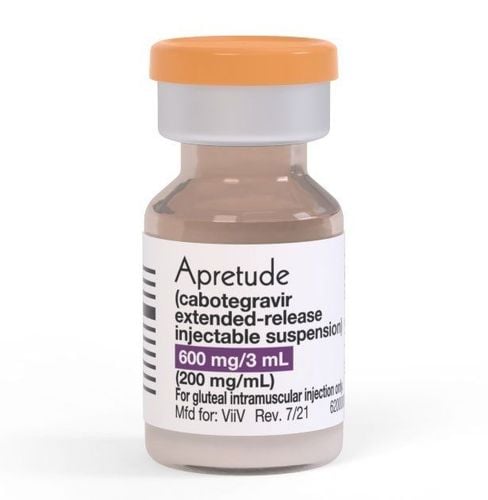This is an automatically translated article.
The article was professionally consulted by Dr. Nguyen Ba Hung - Male doctor - Reproductive Support Center, Vinmec Times City International General Hospital.Sexually Transmitted Infections STIs include a wide range of diseases that are typically acquired through sexual activity. This type of disease can be caused by many types of causes: Bacteria, fungi, viruses and parasites. How to prevent sexually transmitted infections? The information below will answer this problem.
1. What are sexually transmitted infections (STIs) or sexually transmitted infections?
Sexually transmitted infections (STIs) or sexually transmitted infections STIs are understood as one. These are infections that are spread through contact between the genitals, genital secretions of an infected person and the mucous membranes (eyes, nose, mouth, anus) with the damaged skin of the healthy person. sexual activity.STIs can have serious effects on the body and can even be fatal. With the exception of colds and flu, STIs are the most common (easily contagious) infectious disease. According to statistics, in the United States, every year there are millions of cases of sexually transmitted infections. Although some STIs can be treated and cured, others cannot.
2. How are STIs transmitted?
A person with an STI can pass it on to others by contact with their skin, genitals, mouth, rectum, or body fluids. Anyone who has vaginal, anal, or oral sex with another person can get an STI. There are many types of STIs that cause no symptoms, but your health is still affected.
3. What causes STIs?
STIs are caused by infections caused by bacteria such as: Gonorrhea, Chlamydia, syphilis... or viruses such as: Genital warts (HPV), genital herpes, molluscum contagiosum... or other diseases. parasites such as: Candida , vaginal thrush... STIs caused by bacteria and parasites can be treated with antibiotics and antiparasitic drugs. However, sexually transmitted infections caused by viruses have a very low chance of being cured, but the symptoms are still treatable.4. Factors that increase the risk of STIs
The following factors can increase your risk of getting sexually transmitted infections (STIs):
Having sex with many different people Having a partner who has had sex with many other people having sex with someone who has an STI A person with a history of a sexually transmitted infection (if you have had a STI before, the chance of another STI getting into your body is quite high) Sharing needles Uncircumcised men
5. Some of the Most Common STIs
Chlamydia: A disease caused by bacteria that can be passed from one person to another during vaginal sex, oral sex, or anal sex. Infection can occur in the mouth, reproductive organs, urethra, and rectum. In women, the most common site of infection is the cervix.Gonorrhea: Gonorrhea and Chlamydia often occur together. Gonorrhea is also caused by bacteria that can be passed to a sexual partner during vaginal, anal, or oral sex.
Genital herpes : Is a sexually transmitted infection (STI). It is caused by a virus called the Herpes simplex virus (HSV). An HSV infection can cause sores and blisters around the lips, genitals, or anus. Sometimes, HSV infection does not cause sores, or HSV infection goes undetected. Genital herpes is an incurable disease. However, there are a number of drugs that can shorten the time it takes for lesions to recur and lessen or even prevent them from occurring.
Human immunodeficiency virus (HIV) infection : Causes immunodeficiency syndrome when infected with HIV/AIDS. Once the HIV virus is in the body, it attacks the immune system. When your immune system is weakened, your body is less able to fight off illnesses and infections like pneumonia, certain types of cancer, and other infections.
Human papillomavirus (HPV) infection: Like all viruses, HPV causes infection by entering cells. Once inside a cell, HPV takes control of the cell's interior and uses the cell to make copies of itself. These copies then infect other cells nearby.
Syphilis : Caused by bacteria. The bacteria enter the body through a break in the skin or through contact with an infected person with syphilis. This lesion usually appears on the vagina, anus, or penis. Syphilis is usually spread through sexual contact. Genital sores also make it easier for HIV to spread. Syphilis can also be spread by contact with the rash that appears in the later stages of the disease. Trichomonas is a disease caused by the microscopic parasite Trichomonas vaginalis. It is transmitted sexually.
Hepatitis B : An infection caused by the hepatitis B virus. This disease is contagious and can lead to serious health problems.
6. How can STIs affect pregnancy?

Getting STIs during pregnancy can harm the unborn baby. Gonorrhea and Chlamydia can both affect children, causing eye infections and pneumonia. Syphilis can cause miscarriage or stillbirth. HIV infection can be passed on to the baby.
If you are pregnant and you or your husband/partner has had an STI, tell the doctor who is taking care of your maternity health because the baby could be in danger. Tests that detect some STIs are routinely offered during maternity care. It's best to get treatment for an STI early to reduce the chance of your unborn baby becoming infected.
7. How can my risk of STIs be reduced?
There are many ways you can reduce your risk of STIs:
Find out if your partner has an STI? Besides, limit sex with many people to reduce the risk. Using a condom during vaginal, oral, or anal sex will reduce the chance of infection. Do not use a condom more than once during sex. Avoid high-risk sexual behaviors such as lacerations, as it increases the risk of STIs. Even small cuts that don't bleed allow germs to get in. Anal sex is also risky because tissues in the rectum are prone to tearing. Body fluids can also carry STIs. Preventive vaccination helps prevent hepatitis B, warts and some other viruses such as HPV, hepatitis B, hepatitis C... Package of social diseases examination and screening of National General Hospital Vinmec Clinic helps customers screen for social diseases in order to detect diseases early for effective treatment and avoid complications.
Please dial HOTLINE for more information or register for an appointment HERE. Download MyVinmec app to make appointments faster and to manage your bookings easily.
According to Acog.org













